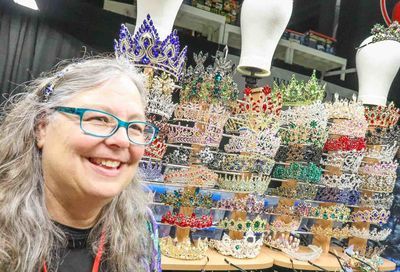‘John Lewis: Good Trouble’ traces the leader’s march towards equality directly to a new generation of activists
Dawn Porter's documentary surveys the activist and congressman's life of stirring up change

Fifty-five years since John Lewis and dozens of other peaceful protesters were beaten by Alabama state troopers in Selma, Lewis still likes to say that as a sharecropper’s son who always was told to stay out of trouble, he believes in making “good trouble” when the cause calls for it.
“When I first heard Mr. Lewis explain what good trouble meant to him, I thought, ‘Oh, that’s nice,'” recalls filmmaker Dawn Porter (Bobby Kennedy for President), whose documentary John Lewis: Good Trouble surveys the activist and congressman’s life of stirring up change. “Now I think I see it a little more urgently. I’m focusing as much on the word good as on the phrase trouble. And what he’s saying is, upsetting people and possibly causing a ripple and causing a stir can really be good. It can really be necessary. He usually pairs ‘good trouble’ with ‘necessary trouble.’ And I think he’s right. I think that being silent is not helpful. And now I think what we’re seeing is it’s dangerous. So I think good trouble is kind of a rallying cry for all of us who cannot be complacent.”
Arriving at a time when people, especially young people, all over the world are rallying and marching for justice and change, Porter’s film captures how Lewis stepped into his purpose as a very young man. Inspired by the Martin Luther King, Jr.-led bus boycott of 1955, Lewis joined the movement for civil rights as a student, and by 1963, as chair of the Student Nonviolent Coordinating Committee, the 23-year old was helping to organize the March on Washington.
“John Lewis’ life and legacy is about service,” says Porter. “It is about what is good for all people. It’s like that phrase, you’re only as happy as your unhappiest child. I think that John Lewis has always understood that. And that is why his message, I think, is so, so critical today. If we don’t understand our history, we repeat it.”
Despite good people waging decades of necessary trouble, history does repeat itself constantly. Lewis and his fellow marchers in Selma were demonstrating for equal voting rights, still in peril today. And they marched across the Edmund Pettus Bridge that day partly to commemorate the shooting death, a week prior, of unarmed Black activist Jimmie Lee Jackson, killed by a state trooper. So the world still needs crusaders for justice and equity, and Good Trouble shows Lewis expanding his crusade to amplify the voices of younger generations of liberal leaders, like Alexandria Ocasio-Cortez, Ayanna Pressley, and Beto O’Rourke.

“It was really important to me to show that AOC, Ayanna Pressley, Rashida Tlaib, Ilhan Omar, that John Lewis sought them out in addition to them seeking him out,” says Porter. “And he is joyfully looking to the next voices, the next generation. He understands that the torch will have to be passed and that we need to have people who are given the grace of being mentored the way that he was mentored. You have to stand for something besides yourself, besides your own political power.”
John Lewis: Good Trouble is available on VOD on Friday, July 3. Visit www.johnlewisgoodtrouble.com.
Support Metro Weekly’s Journalism
These are challenging times for news organizations. And yet it’s crucial we stay active and provide vital resources and information to both our local readers and the world. So won’t you please take a moment and consider supporting Metro Weekly with a membership? For as little as $5 a month, you can help ensure Metro Weekly magazine and MetroWeekly.com remain free, viable resources as we provide the best, most diverse, culturally-resonant LGBTQ coverage in both the D.C. region and around the world. Memberships come with exclusive perks and discounts, your own personal digital delivery of each week’s magazine (and an archive), access to our Member's Lounge when it launches this fall, and exclusive members-only items like Metro Weekly Membership Mugs and Tote Bags! Check out all our membership levels here and please join us today!

























You must be logged in to post a comment.